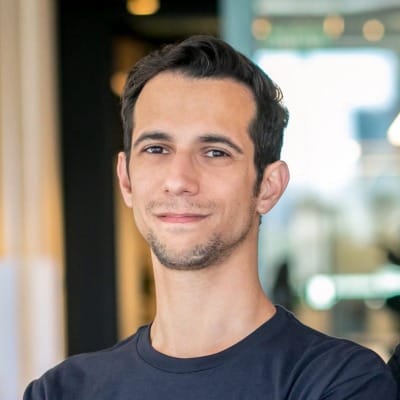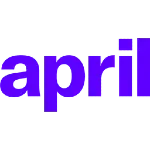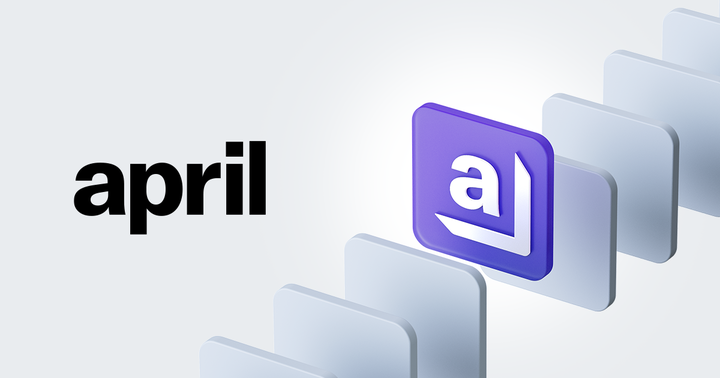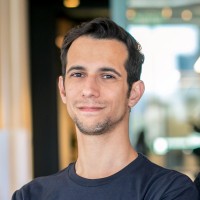Engineering Leadership Series - Daniel Marcous


Biography: Daniel Marcous, the Co-Founder and CTO of april, brings his rich experience in tech and data science to solve tax and save people time and money. After spending seven years at Google as a Data Wizard, managing tech projects and teams, as well as forming AI strategy for Google Cloud, he became the data science lead & CTO at Waze. There, he helped scale the platform’s data capabilities to support millions of users, driving smarter navigation and real-time insights.
More Information:


The Interview
- Tell us your story, how did you discover your interest in software engineering?
It’s not a very sexy story, but I started loving software engineering being a gamer as I was growing up, and doing some extracurricular in trying to hack the games I loved most to get to the top scores :P I then chose software engineering in high school quite randomly and found it comes more naturally to me than most. I really only started falling in love with it while learning about operating systems and how everything we do in software today is pretty much built on the shoulders of giants. I’ve since become obsessed with learning every single sub-domain in software engineering to improve my craft and be able to solve real problems end to end. The one that hit closest and became my passion is data. From data management, to analytics, to data science and AI.
- Having spent many years at Google and on the Waze team, what are some lessons you learned that prepared you to co-found april and lead the tech team?
At Google, and especially at Waze, I learned that velocity is a product of clarity and architecture. Systems that scale don’t just solve today’s problems—they create a flywheel for fast iteration. But great tech alone isn’t enough. Culture matters. Shared ownership, ruthless prioritization, and fast feedback loops are what make high-performing teams move. I also came to respect ambiguity. The biggest opportunities are usually hiding in messy, undefined spaces.
- april’s platform leverages artificial intelligence to automate tax filing and offer personalized financial insights. What problem are you solving that the market was missing?
Taxes have been artificially siloed, disconnected from how people manage their money. april changes that. We embed tax logic directly into the financial platforms people already use, making tax a native, year-round experience. Most people don’t want to deal with tax forms but they do want clarity, confidence, and one less thing to worry about. The real problem isn’t just complexity, it’s fragmentation, friction, and unnecessary cost. We're solving all three.
- What is your team working on that you are most excited about? Are there any unique and interesting technical challenges?
We’re building software that makes tax smart, adaptive, and always on. Our internal platform, aprilOS, pairs tax experts with AI to translate policy into product. It’s a collaborative process with humans in the loop, designed to move fast without cutting corners. When the law changes, we can update logic quickly and confidently. On the product side, we’re launching embedded planning tools that use real-time data from our partners to give users accurate tax estimates with almost no effort. The challenge is making that feel seamless—real-time, personalized, and invisible until it matters.
- What do you think are the secrets to being successful?
There’s a hidden assumption here that I look at myself as “successful”, which I’m not. I feel like I’m on the right track, so I can relate to what I think it takes to get on the right track. Ask me again in 5 years…
Hard work and motivation to succeed, become obsessed with the problems you aim to solve, and a willingness to run toward hard problems. The best engineers I know are allergic to hand-waving. They ask better questions and truly aim to understand why they are building what they are building, not just code faster. I’ve also learned that success depends on clear thinking: about what matters, what doesn’t, and how to make decisions without perfect information. Great teams don’t just tolerate uncertainty, they operationalize it.
- How do you approach leadership? Are there certain things you try to do and certain things you try to avoid?
I aim to lead with passion and inspiration, bringing people to the ride along with me. When you work with smart people, they have opinions and amazing insights. If you can inspire them, convince them you are on to the right path and gain their trust - you are on the right track.
My job is to give people a clear sense of mission, priorities, and tradeoffs so they can move fast and own decisions. I also believe in being transparent about what we don’t know. Pretending otherwise wastes time. People trust you more when you’re honest about uncertainty, and they focus better, too.
- How do you typically hire talented engineers?
We hire for hunger, not just skill. We look for people who are curious, comfortable with ambiguity, and passionate about solving difficult problems. Our interviews focus on real-world scenarios, not abstract puzzles. We want engineers who care about product and impact.
- You’re quite active in the data science and engineering fields. You act as a contributor and mentor involved in projects like Datahack and Kaggle. How do you find time to participate in these and what drives you to help spread knowledge and understanding?
Learning and teaching go hand in hand. I make time for these communities because I gain as much as I give. Explaining things to others helps me become a better thinker and builder. And working with curious minds outside my day job gives me energy. I also kinda look at it as a hobby, I love what I do enough for it to be a nice pastime.
- What advice would you give to your younger self?
Start sooner. You do not need permission to begin something difficult. Also, invest early in communication skills. They matter just as much as technical skills.
- You walk into the best bar in the world. What drink are you ordering? What’s your favorite drink to mix?
Classic Martini - Gin based; Stirred, not shaken. That’s where a first-class bar should always put on its unique signature - secret ratio, homemade bitters, infusions etc. My favorite to mix at home I guess changes based on time of year - but mostly Negroni’s in the summer, Corpse Reviver #2 in the winter.
- When you’re 80 looking back, what do you want to have accomplished in your life?
I want to know I helped make complex things understandable. That I built systems and teams that improved people’s lives: not in the abstract, but in ways that actually made life less stressful. And I want to know I helped others find purpose in what they were building. Because work is a big part of life, and it should matter.
We hope you enjoyed this interview. If you would like to be featured in a future interview, please contact our team at innovationinsider@donestreet.com.
To learn more about DoneStreet and why our customers love us, follow this link.
Spend Less Time Hiring, More Time Building. Hire With Confidence Through DoneStreet.
If you have not yet subscribed, please hit the subscribe button and let us know what types of content you’d like to see more of in the future.
Thanks for reading Innovation Insider - Presented by DoneStreet! Subscribe for free to receive new posts and updates.



